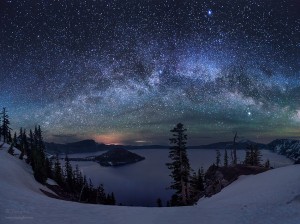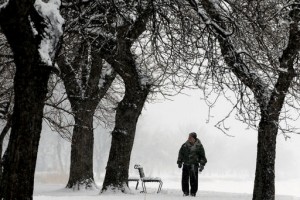Oh, Yesterday
And now, as a follow-up to yesterday’s post, this prose poem by Mary Oliver:
Oh, yesterday, that one, we all cry out. Oh, that one! How rich and possible everything was! How ripe, ready, lavish, and filled with excitement–how hopeful we were on those summer days, under the clean, white racing clouds. Oh, yesterday!
Me, 1990
Give Up All Other Worlds
Sweet Darkness
by David Whyte
When your eyes are tired
the world is tired also.
When your vision has gone
no part of the world can find you.
Time to go into the dark
where the night has eyes
to recognize its own.
There you can be sure
you are not beyond love.
The dark will be your womb
tonight.
The night will give you a horizon
further than you can see.
You must learn one thing.
The world was made to be free in.
Give up all the other worlds
except the one to which you belong.
Sometimes it takes darkness and the sweet
confinement of your aloneness
to learn
anything or anyone
that does not bring you alive
is too small for you.
Listening
That is true. But it’s not helpful.
So I turn, instead, to poetry:
The Snow Man
by Wallace Stevens
One must have a mind of winter
To regard the frost and the boughs
Of the pine-trees crusted with snow;
And have been cold a long time
To behold the junipers shagged with ice,
The spruces rough in the stand glitter
Of the January sun; and not to think
Of any misery in the sound of the wind,
In the sound of a few leaves,
Which is the sound of the land
Full of the same wind
That is blowing in the same bare place
For the listener, who listens in the snow,
And, nothing himself, beholds
Nothing that is not there and the nothing that is.
How Would You Live Then?
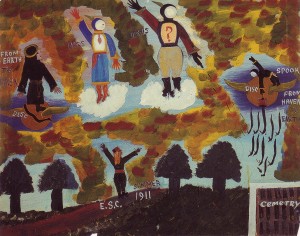 I’m in the mood for a little Mary Oliver this morning:
I’m in the mood for a little Mary Oliver this morning:
How Would You Live Then?
What if a hundred rose-breasted grosbeaks
flew in circles around your head? What if
the mockingbird came into the house with you and
became your advisor? What if
the bees filled your walls with honey and all
you needed to do was ask them and they would fill
the bowl? What if the brook slid downhill just
past your bedroom window so you could listen
to its slow prayers as you fell asleep? What if
the stars began to shout their names, or to run
this way and that way above the clouds? What if
you painted a picture of a tree, and the leaves
began to rustle, and a bird cheerfully sang
from its painted branches? What if you suddenly saw
that the silver of water was brighter than the silver
of money? What if you finally saw
that the sunflowers, turning toward the sun all day
and every day–who knows how, but they do it–were
more precious, more meaningful than gold?
***
(image by Peter Attie Bochero, from Outsider Art)
Such Teachings As These
 In celebration of the end of the Old Year and the beginning of the New, I offer yet another poem by Mary Oliver — this one a perennial favorite.
In celebration of the end of the Old Year and the beginning of the New, I offer yet another poem by Mary Oliver — this one a perennial favorite.
Mindful
Every day I see or hear something that more or less
kills me with delight, that leaves me like a needle
in the haystack of light. It was what I was born for — to look, to listen,
to lose myself inside this soft world — to instruct myself over and over
in joy, and acclamation. Nor am I talking about the exceptional,
the fearful, the dreadful, the very extravagant — but of the ordinary, the common, the very drab,
the daily presentations. Oh, good scholar, I say to myself, how can you help
but grow wise with such teachings as these — the untrimmable light
of the world, the ocean’s shine, the prayers that are made out of grass?
Look Again
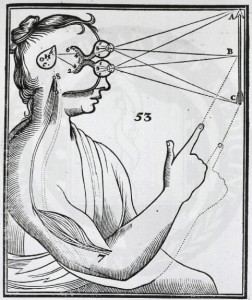 I’m still practicing the “Now I See” exercise I wrote about previously (here and here and here) in which I go to the St. Louis Art Museum, choose a piece of art that “catches my eye,” then look at it awhile and write a page about it in my journal beginning with the phrase: “Now I see…,” then go back a week or more later, look at it some more and write about it again, and then go back and look-and-write until I’ve done it 13 times.
I’m still practicing the “Now I See” exercise I wrote about previously (here and here and here) in which I go to the St. Louis Art Museum, choose a piece of art that “catches my eye,” then look at it awhile and write a page about it in my journal beginning with the phrase: “Now I see…,” then go back a week or more later, look at it some more and write about it again, and then go back and look-and-write until I’ve done it 13 times.
It’s an amazing and enlightening exercise.
There’s nothing magic about doing it 13 times. It just needs to be done a few more times that you think you’ll be able to look at the same frickin’ thing and still be able to write about it!
Also, it’s inspired by this poem by Wallace Stevens, which I don’t exactly understand, but I keep returning to again and again:
Thirteen Ways of Looking at a Blackbird
I
Among twenty snowy mountains,
The only moving thing
Was the eye of the blackbird.
II
I was of three minds,
Like a tree
In which there are three blackbirds.
III
The blackbird whirled in the autumn winds.
It was a small part of the pantomime.
IV
A man and a woman
Are one.
A man and a woman and a blackbird
Are one.
V
I do not know which to prefer,
The beauty of inflections
or the beauty of innuendoes,
The blackbird whistling
Or just after.
VI
Icicles filled the long window
With barbaric glass.
The shadow of the blackbird
Crossed it, to and fro.
The mood traced in the shadow
An indecipherable cause.
VII
O thin men of Haddam,
Why do you imagine golden birds?
Do you not see how the blackbird
Walks around the feet
Of the women about you?
VIII
I know noble accents
And lucid, inescapable rhythms;
But I know, too,
That the blackbird is involved
In what I know.
IX
When the blackbird flew out of sight,
It marked the edge
Of one of many circles.
X
At the sight of blackbirds
Flying in a green light,
Even the bawds of euphony
Would cry out sharply.
XI
He road over Connecticut
In a glass couch.
Once, a fear pierced him,
In that he mistook
The shadow of his equipage
For blackbirds.
XII
The river is moving.
The blackbirds must be flying.
XIII
It was evening all afternoon.
It was snowing
And it was going to snow.
The blackbird sat
In the cedar-limbs.
Dressed Up
 I’m feeling in the mood for a little Mary Oliver today:
I’m feeling in the mood for a little Mary Oliver today:
Poem (the spirit likes to dress up)
The spirit
likes to dress up like this:
ten fingers,
ten toes,
shoulders, and all the rest
at night
in the black branches,
in the morning
in the blue branches
of the world.
It could float, of course,
but would rather
plumb rough matter.
Airy and shapeless thing,
it needs
the metaphor of the body,
lime and appetite,
the ocean’s fluids;
it needs the body’s world,
instinct
and imagination
and the dark hug of time,
sweetness
and tangibility,
to be understood,
to be more than pure light
that burns
where no one is —
so it enters us —
in the morning
shines from the brute comfort
like a stick of lightning;
and at night
lights up the deep and wondrous
drownings of the body
like a star.
***
(photo by Jen Gotch, from Polaroid Notes, published by Chronicle Books)
In Order to Arrive
 I’m not sure why, but I feel like quoting a little T.S. Eliot today. Here’s what speaks to me now, from The Four Quartets:
I’m not sure why, but I feel like quoting a little T.S. Eliot today. Here’s what speaks to me now, from The Four Quartets:
Shall I say it again? In order to arrive there,
To arrive where you are, to get from where you are not,
You must go by a way wherein there is no ecstasy.
In order to arrive at what you do not know
You must go by a way which is the way of ignorance.
In order to possess what you do not possess
You must go by the way of dispossession.
In order to arrive at what you are not
You must go through the way in which you are not.
And what you do not know is the only thing you know
And what you own is what you do not own
And where you are is where you are not.
***
(photo by Nichole Robertson, from Paris in Color Notes, published by Chronicle Books)
All Of Us
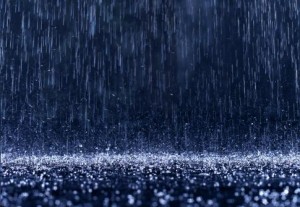 I’m back from the retreats in Mississippi and Tennessee and now, of course, must turn my attention to laundry and grocery shopping and sorting through mail. Which is not that much different, really, than walking and sitting, because there are always thoughts and emotions and sounds and sensations….all coming and going….all pretty much all on their own. The mind is amazing. It never fails to put on a show.
I’m back from the retreats in Mississippi and Tennessee and now, of course, must turn my attention to laundry and grocery shopping and sorting through mail. Which is not that much different, really, than walking and sitting, because there are always thoughts and emotions and sounds and sensations….all coming and going….all pretty much all on their own. The mind is amazing. It never fails to put on a show.
For today’s post, I offer this poem, which I have chosen for many reasons… mostly unknown.
Too Many Names
by Pablo Neruda
Mondays are meshed with Tuesdays
and the whole week with the whole year.
Time cannot be cut
with your exhausted scissors,
and all the names of the day
are washed out by the waters of night.
No one can claim the name of Pedro,
nobody is Rosa or Maria,
all of us are dust or sand,
all of us are rain under rain.
They have spoken to me of Venezuelas,
of Chiles and Paraguays;
I have no idea what they are saying.
I know only the skin of the earth
and I know it has no name.
When I lived amongst the roots
they pleased me more than flowers did,
and when I spoke to a stone
it rang like a bell.
It is so long, the spring
which goes on all winter.
Time lost its shoes.
A year lasts four centuries.
When I sleep every night,
what am I called or not called?
And when I wake, who am I
if I was not I while I slept?
This means to say that scarcely
have we landed into this life
than we come as if new-born;
let us not fill our mouths
with so many faltering names,
with so many sad formalities,
with so many pompous letters,
with so much of yours and mine,
with so much signing of papers.
I have a mind to confuse things,
unite them, make them new-born,
mix them up, undress them,
until all light in the world
has the oneness of the ocean,
a generous, vast wholeness,
a crackling, living fragrance.
On Not Getting Lost
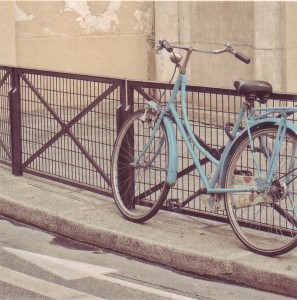 For today, I offer this poem by Lao-Tzu (with a few adjustment by me):
For today, I offer this poem by Lao-Tzu (with a few adjustment by me):
A wise traveler has no fixed plans
and is not intent upon arriving.
A wise artist lets her intuition
lead her wherever it wants.
A wise scientist has freed herself of concepts
and keeps her mind open to what is.
Thus the Master is available to all people
and doesn’t reject anyone.
She is ready to use all situations
and doesn’t waste anything.
This is called embodying the light.
What is a wise person but a foolish person’s
teacher?
What is a foolish person but a wise person’s lesson?
If you don’t understand this, you will get lost,
however intelligent you are.
It is the great secret.
***
(photo by Nichole Robertson)


